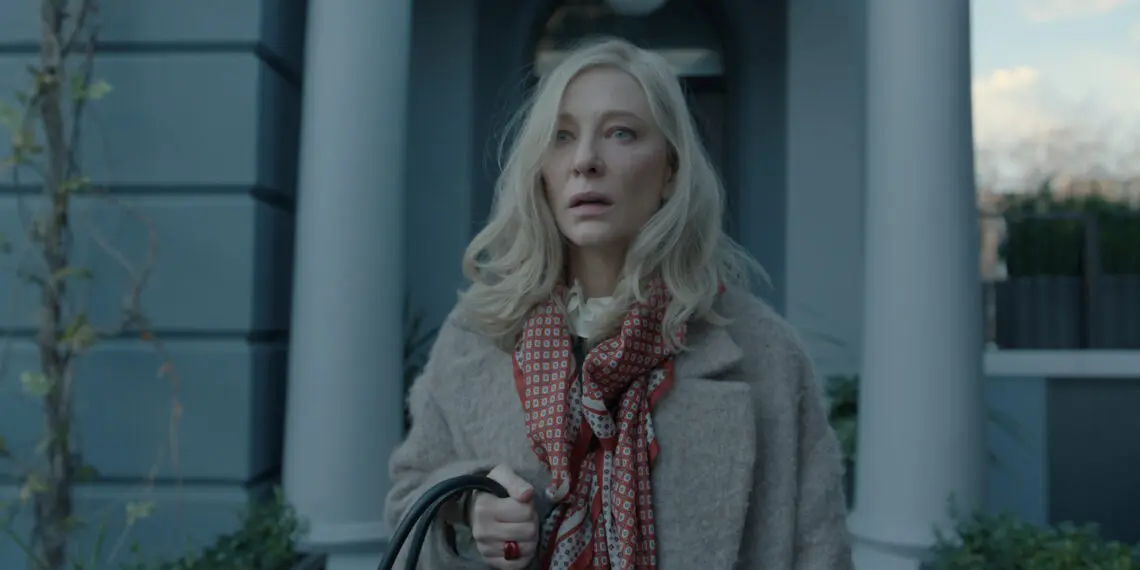A deep dive into ‘Disclaimer’: Alfonso Cuarón’s ambitious yet flawed adaptation
The captivating ocean metaphor
Few directors utilize natural elements as allegories for human emotion as masterfully as Alfonso Cuarón. In his illustrious career, seen in films such as “Children of Men,” “Gravity” and “Roma,” the ocean has often played a pivotal role, symbolizing themes of rebirth, security, and cathartic transformation. This trend continues in the new Apple TV+ series “Disclaimer,” written and directed by Cuarón himself. The story revolves around conflicting accounts of a young man’s tragic drowning on an Italian beach, with the series notably teeming with scenes set against the rhythmic, crashing waves.
A challenging adaptation
Disclaimer, adapted from Renée Knight’s 2015 novel, proves to be an intriguing yet challenging project for Cuarón. At its core, the series is a dialogue-driven drama that delves into themes of grief, self-deception, and storytelling—a stark contrast to the visual epic nature Cuarón excels in. While his past works, like Roma, effectively blended personal narrative with grand spectacle, this series struggles to maintain the same balance, occasionally faltering under the weight of its complex genre.
Despite the compelling narrative, Disclaimer faces several hurdles as it transitions from novel to TV series. It is not the first adaptation to grapple with maintaining the essence of its source material, resulting in an inconsistent episodic structure. High-caliber talents such as Cate Blanchett and Kevin Kline headline the cast, but their performances sometimes clash with the show’s pacing and narrative style.
Stellar performances in turbulent waters
Blanchett steps back into TV following her acclaimed role in Mrs. America, bringing life to her character Catherine Ravenscroft, an esteemed documentarian faced with a haunting chapter from her past. However, the series chooses to focus more on symbolic meanings than on her character’s actual work, painting Catherine’s life as potentially built on deceit when a self-published novel titled “The Perfect Stranger” arrives at her doorstep.
Kevin Kline delivers a surprisingly convincing performance as Stephen Brigstocke, who embarks on a quest for revenge after enduring personal and professional losses, including the death of his son Jonathan during a gap year in Italy. The series weaves between Stephen’s pursuit of Catherine and flashbacks that seem to lay the groundwork for his vendetta.
Cinematic brilliance and missteps
In terms of cinematography, Emmanuel Lubezki and Bruno Delbonnel do not disappoint. The series is rich with a golden-hour glow, especially in scenes illustrating Jonathan’s admiration for a younger Catherine (portrayed by Leila George). The present-day narrative, however, shows a less idyllic side of life as Stephen disrupts Catherine’s family by sending compromising photos to her husband, Robert (played by Sacha Baron Cohen), and engaging in a sinister catfishing scheme with her son, Nicholas (played by Kodi Smit-McPhee).
Despite a few narrative missteps, the series attempts to root itself in the complex emotional breakdown of Catherine. Production designer Neil Lamont and set decorator Pancho Chamorro craft visually contrasting worlds—the sleek spaces Catherine inhabits juxtaposed with the dowdiness of Stephen’s residence.
Repetitive themes and missed opportunities
A significant challenge for the series is Blanchett’s character, who, despite her dynamic performance, seems to tread familiar ground. Blanchett excels in playing affluent women facing reckonings, as evidenced in her work in “Blue Jasmine” and “Tár.” In Disclaimer, however, she is encumbered by an overly verbose narration and the strategically delayed reveal of her backstory, which diminishes suspense and impacts her character development.
When Catherine declares, “It is time for my voice to be heard,” the series’ portrayal of past interludes, albeit strikingly graphic and provocative, fails to convey objective truth. The series prolongs these revelations, causing a substantial dip in tension and momentum.
An ambitious, yet flawed feminist commentary
Disclaimer grapples with making an impactful feminist statement, despite its noble intentions. When “The Perfect Stranger” gains traction, a bookseller’s remark about the Catherine surrogate as an “awful female character” mirrors struggles seen in other adaptations like Fleishman Is In Trouble. Both adaptations falter in translating their narratives’ perspectives effectively to television.
Cuarón’s attempts to embed a surreal, Kafkaesque tone within the series do not fully materialize into an allegorical triumph. The believability of characters’ actions and the biases highlighted feel disjointed with the overall storytelling arc. While visually arresting, the series fails to coalesce into a cohesive narrative vessel, leaving viewers with a beautifully shot, yet narratively unsatisfactory experience.
Disclaimer is now streaming its first two episodes on Apple TV+, with new episodes released weekly on Fridays. For more insights and updates on the latest TV series and films, keep following us on social media and join the conversation.

 Italian
Italian







